5 Top Tips On Keeping A Clean Garden

- 1. Take a shower!
- 2. Equipment organization and tidiness
- 3. "i think i need some space"
- 4. Daily checks
- 5. Prune regularly, and clean up the rests of course
- 6. Indoor grow room (or tent) maintenance schedule
- 7. Extra advice: trellising
- 8. The bottom line
Planting your own cannabis seeds can become a nightmare if you don’t follow through some basic procedures. Or did you think you just needed to throw some seeds on the ground, wait a couple of months, and ta-dá? We’re sorry to break this to you, but there’s much more to homegrown cannabis than that. In fact, growing marijuana can be an extensive field to dive into if you're passionate about it. And the more knowledge you gain on the subject, probably the better your final results will be.
The first thing we learned from Mr. Walter White on Breaking Bad is that a clean workplace can make all the difference in the final quality result of your product. Luckily, we’re here to help you become the Heisenberg of weed growing with 5 tips on keeping a clean garden (if you’re not getting all the Breaking Bad references you're not just missing the best series ever made, oh wait. You really have 5 seasons of homework to do). In order to get the most out of your cannabis plants its essential to keep your garden clean.
It might not seem important to keep your garden clean—after all, aren’t these growing spaces already filled with dirt, microbes, and insects? Sure, but these things are actually healthy and beneficial to plants, considering the right species are involved! By keeping your garden generally clean and tidy, you’ll help to optimize the health of your plants, and the size of your yields, by reducing pest pressure and helping to curb the spread of pathogens. Not only this, but it’s much more pleasant to grow and work in a clean and visually aesthetic garden, than one filled with junk that you’re constantly tripping over. You can do this by engaging in this 5-step daily routine:
- Keep yourself clean;
- Maintain an organized workspace;
- Know how to distribute your plants;
- Check for pests and mold;
- Prune regularly.
1. Take A Shower!
We’re kidding. Ok, maybe we aren't. It just makes sense to keep yourself clean if you want to maintain the space around you, the garden, clean as well. By being neat and polished you’ll ensure you don't infect your plants and weed garden with unwanted bacteria you could bring from the streets and other places.
If you're dead serious about this point then it would be a good idea to get yourself a uniform specifically aimed for moving around in your garden. Also, remember to cover or tie back your hair to keep it from falling around your green space.
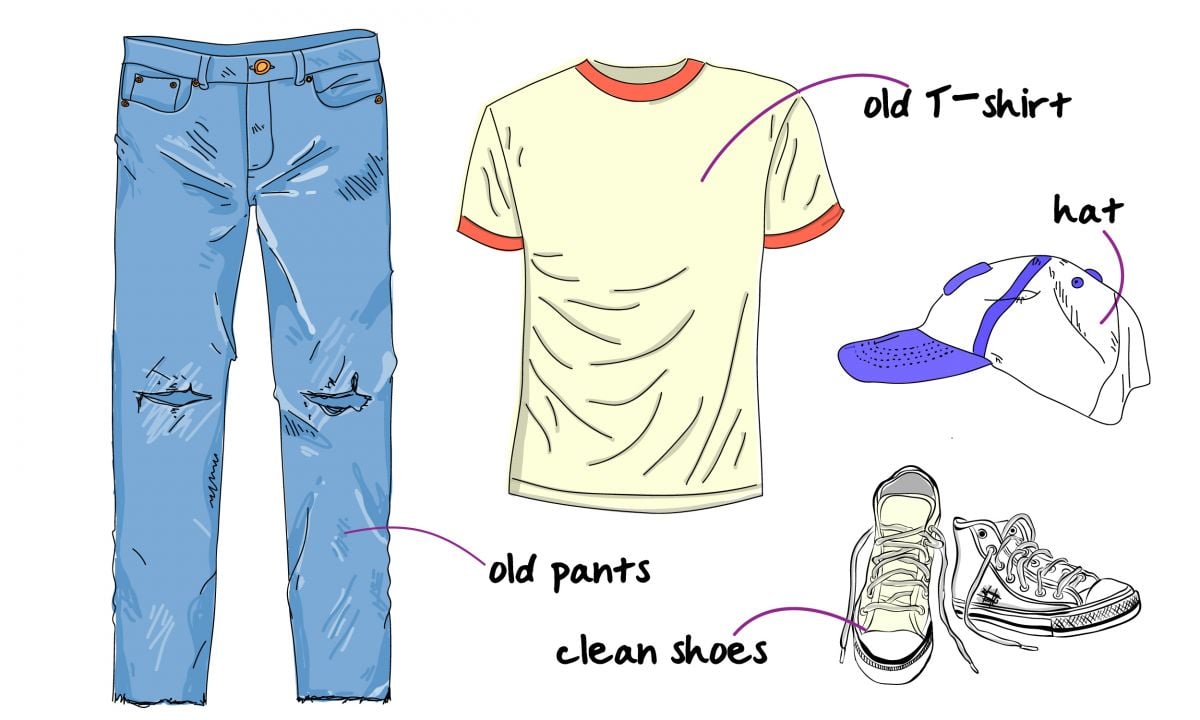
Don't forget to pay attention to your shoes since they are the dirtiest pieces of clothing in our wardrobe. You should make sure to clean them or even leave a couple of spare shoes in the garden which you’ll use only in that area. Having a separate pair of shoes and a set of clothes for outdoor gardening activities will also help to break up potential vectors of pests and diseases.
This comes in especially handy if you also grow plants, including weed, indoors. Changing and showering before you go from one of these places to the other will help to prevent the spread of fungal pathogens and pest insects. Sure, you’re more likely to bring in pests and diseases from outside, but these threats can also develop indoors, too. Of course, we also recommend never moving plant material from one of these sites into the other, as these pieces of tissue are at high risk when it comes to spreading plant diseases.
2. Equipment Organization and Tidiness
Another key aspect to keeping your garden clean resides in the way you store your supplies and equipment. For this, we recommend setting up a couple of shelves or cupboards for your comfort. Another great idea to keep your tools handy, safe, and in order is wall mounting. A good way for doing this is attaching a couple of hooks around the wall, or maybe sticking some magnets to your most-used equipment. If you are a weed growing enthusiast, perhaps a little OCD, or both, you could try to arrange your supplies by category: nutrients with nutrients, tools altogether, grow mediums by the side, pots, and buckets on the other, etceteras somewhere else. Treat your garden like a sanctuary!
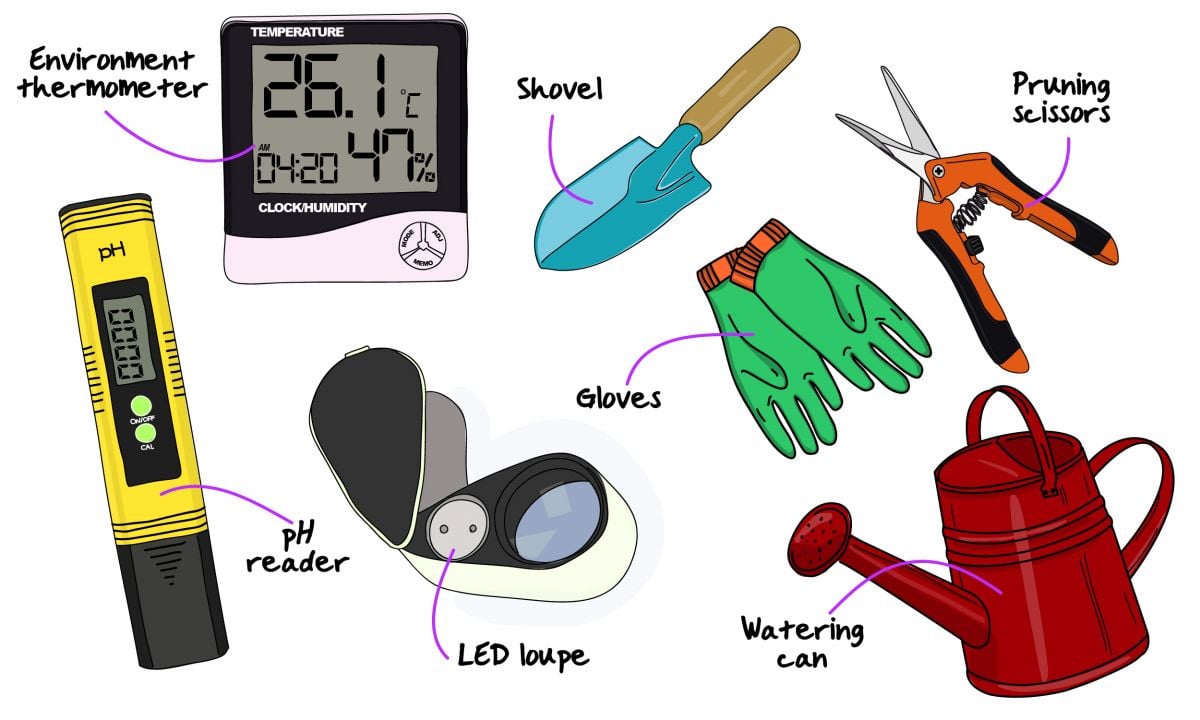
One final key aspect of your equipment and organization that will help with the overall maintenance of your garden is regularly dusting your grow space. Even when we make our biggest efforts to keep everything shiny, dust will naturally build up, we can't avoid it. And don't forget to clean each of your tools after using them too. To easily remove the dust you can use dry cloth, and in case you need to use a wet cloth be careful about the electrical equipment. Some useful tools to include in your cannabis garden are:
- Led loupe light to check for trichome development, disease, and pests;
- Automatic pH reader to test your soil quickly;
- An environment thermometer;
- Curved trimming scissors;
- Small shovel;
- Gloves;
- Watering can
3. "I think I need some space"
Who knew the phrases "Let me breathe!" and "I need some space" applied to cannabis plants as well. The way you arrange your plants around plays one of the most significant parts of the overall cleanness of your garden. The number one rule is space. It may seem overreacted to leave too much space in between plants but it’s better to have too much and not need it, than needing it and not having it.
This point is especially important for outdoor growing. When you transplant your small cannabis plants into the ground, try to keep in mind that they can grow 3 meters high in the air, therefore you should leave a significant space between each of your plants.
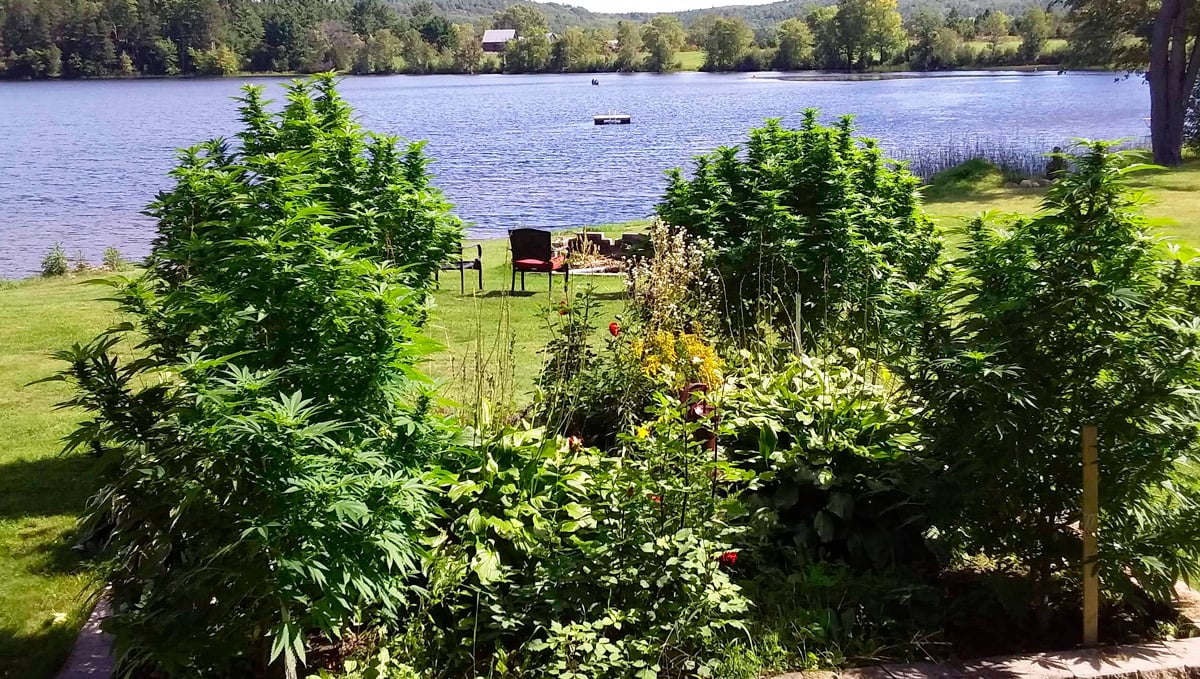
When choosing where to place each plant it’s also extremely pertinent to take light into consideration. Your plants should be set nicely so that when they grow big enough they all receive light evenly, without overshadowing their neighbor friends. And watch out for air circulation too, we don’t want any humidity building up between your plants! The recommended spacing for the different indoor growing techniques are:
| Low-stress training | 4 plants per m2 |
|---|---|
| Pruning | 1 plants per m2 |
| SOG (Sea of Green) | 4-16 plants per m2 |
| ScrOG (Screen of Green) | 1 plants per m2 |
Finally, if your garden space is big, set the plants in a way where you have some extra space to comfortably move around as you work on them.
4. Daily Checks
To avoid ugly surprises you should check on your plants every day. And when we say check we don't mean simply watering them, taking a quick look, and leaving. You should take enough time to get a closer look at each of your babies and beware of any anomalies you could find. This way you’ll be able to take early notice and attend any inconveniences you might find, such as leaves being attacked by insects or mildew forming, which if not attended in time, could infect the rest of your plants as well and completely ruin them. One last extra tip is hanging a calendar somewhere around your garden or shed to help you keep track of the whole process and follow a structured routine.
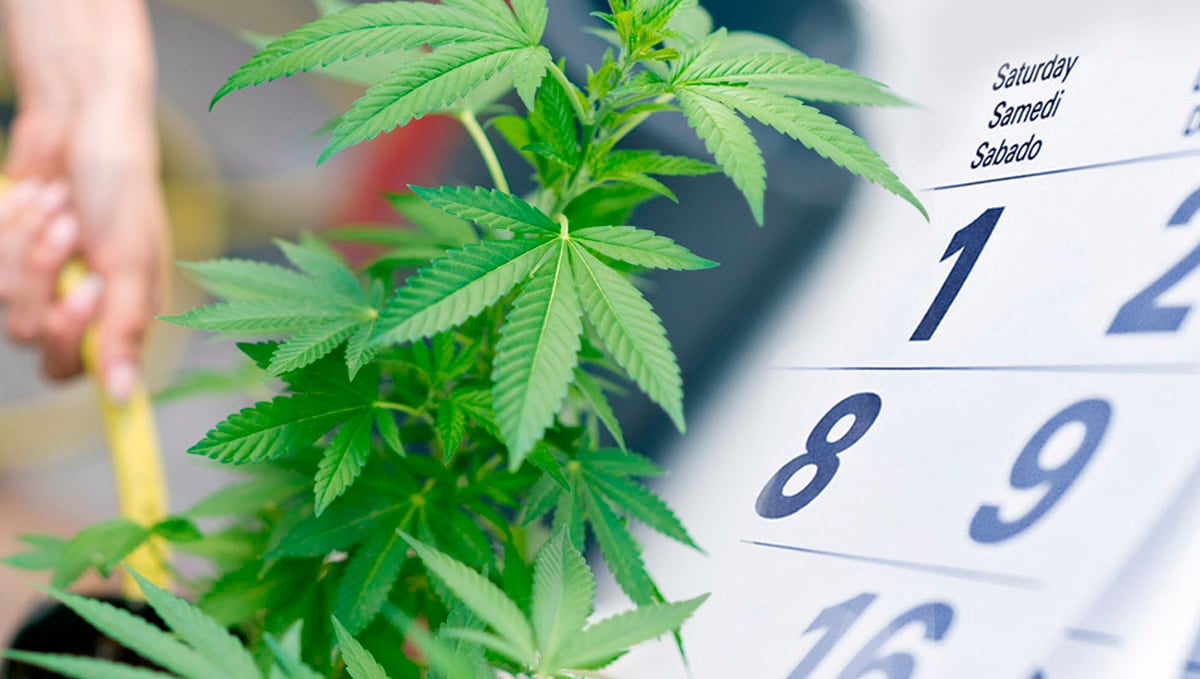
You shouldn’t only head out into the garden when you need to complete a specific task, you should also enjoy simply being in this pleasant and soothing natural environment! Pour yourself a cup of tea and take a slow stroll around your plants. Get to know how each of them looks, and develop an inspection routine of all of their anatomical components, from the base of the main stem all the way to the tips of their fan leaves. Doing this activity often, and enjoying it enough to do it thoroughly, will drastically increase the chance of detecting pests, diseases, and nutritional deficiencies before they gain a significant foothold.
When inspecting your plants, you can’t always rely on your naked eyes. Having a loupe, magnifying glass, or even a handheld microscope in your arsenal will help you get up close and personal with plant tissue. This close look will help you detect tiny pests, such as spider mites and thrips. You’ll also be able to take a closer look into tiny gaps, such as the crevices of cannabis buds, that your eyes alone will have a hard time assessing.
5. Prune regularly, and clean up the rests of course
One last tip on keeping your garden extra green-clean is to prune excess leaves on a regular basis. Cannabis plants grow at great speed, especially during the vegetative phase. Although vegetation is important for our plants, you should keep them from getting excessively bushy plants. That’s why pruning and trimming your plants is key to stay in control of the overall growth process.
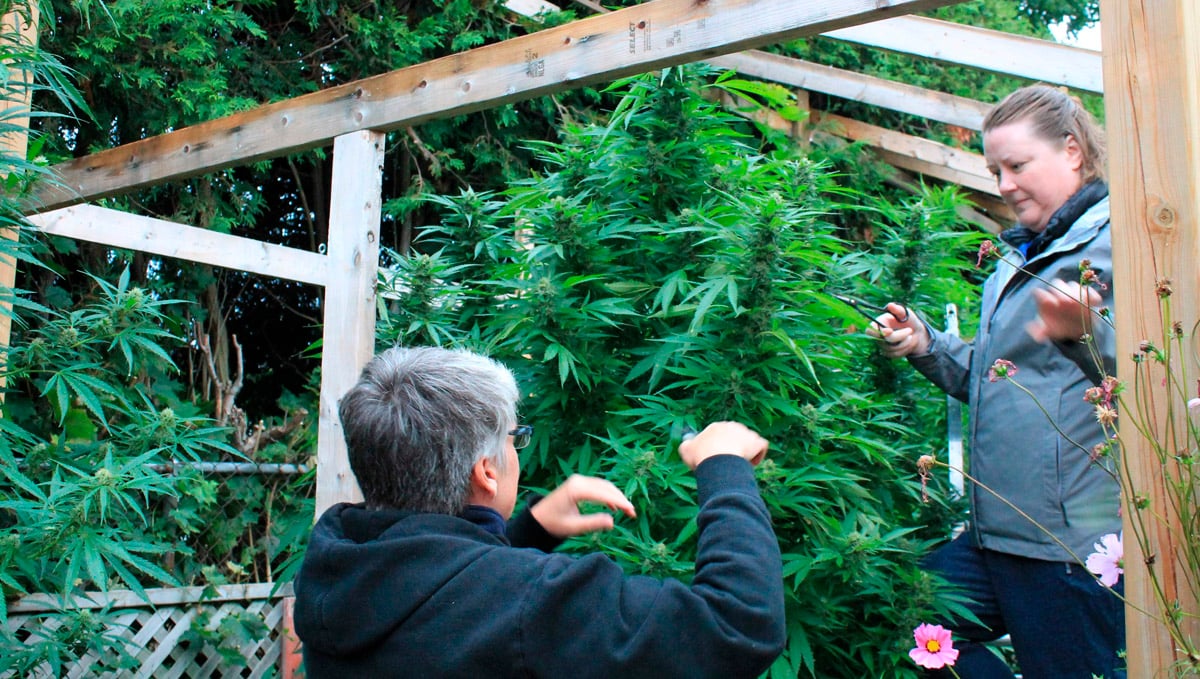
Remember to tear off dead/dying leaves, get rid of the ones eaten by insects as well, and definitely tear off leaves as soon as you see any signs of mold growing! Groomed plants will help your garden look polished and clean. Besides, dead leaves are inviting for fellow insects around the hood, so by cleaning regularly you’ll make sure to keep them away. Once you collect all the excess leaves, the ill or dead ones, and any other rubbish around the garden take out the trash! Leaving it around, near your garden is the same as if you hadn't done the job at all.
Lastly, if things start getting out of hand with the size and growing directions of your plants’ heads don't be scared to teach them a few growing techniques by attaching some strings on the branches to give them the shape you desire. If the garden’s structure allows it, you could also purchase some useful items called Plant Yo-Yo’s. These plant supporters help by hooking one the plant’s stems and taking off some of the weight from her, giving it support while keeping the buds untouched.
6. Indoor Grow Room (or tent) Maintenance Schedule
Cultivating cannabis indoors can be a fun, rewarding hobby. One of the most exciting things a pot enthusiast can do is plant, tend to, and harvest their very own weed - but, it is not always fun and games. Keeping a well-maintained, clean, and organized indoor garden will give your crop the best chance to reach its full potential. So, let’s quickly run through a few daily, weekly, and monthly jobs that can help you keep everything spick and span in your favorite room of the house.
Daily Grow Room Chores
- Keep a dustpan and broom handy to give the area a quick sweep up. This can go a long way in helping you maintain healthy air quality for your crop, and will extend the life of your air filters by a wide margin.
- Carefully examine every single plant. Take note of any major changes and keep a close eye out for any pests or mold. Things can change quickly from one day to the next, so keeping a close eye on the crop is very important.
- Do not let spills sit. Always, we mean always, clean up any spills immediately. Extra moisture inside the growing area can quickly raise the relative humidity levels which can lead to fungal growth and can affect the room structure itself.
- General housekeeping. Remove any and all dead leaves and any other plant material that may have fallen into the pots or on the floor.
Weekly Grow Room Chores
- Give the air filters a good look over. Check for any signs of blockages, and everyday wear and tear. Depending on the filter you have installed, these may be very easy to clean or may need to be replaced totally. We always recommend going for a filter that is easy to clean, as it can save a huge amount of cash in the long run.
- Give the walls of the room or tent a good wipe down with sterilized equipment. Grow tents always come with reflective material on the inner side, and the reflective index can drop quickly if they are not cleaned regularly.
- Give all your tools and trays a good clean. Any household bleach will do the job here, just follow the dilution guide on the bottle and soak all your tools for 10 mins or so, then give them a good wipe down.
- No matter if you are growing with a full hydro setup, with coco-coir, or with good old soil - your water systems need to be sterilized once a week. This is done to combat any chance of algae buildup and to ensure the cleanliness of your feed water.
Monthly Grow Room Chores
- Clean the lighting units. HID lighting almost always incorporates some sort of hood (which are great dirt traps), so take the lighting setup apart and give everything a good wipe down. This is less important for LED lighting, as there is no need for a hood, but it is still a good idea to give whatever light source you use a good clean every month or so. If you are using HID lighting, grab a light meter to check the output is still sufficient.
- Inspect the whole area thoroughly for any mold issues. Get under any tables, carefully lift the pots (if possible), and get up close to the roof - really have a good search to make sure there are zero signs of mold growth.
- Pull the air exchange system apart and make sure the airflow is still at optimal levels.
- Flush your plants. Nutrients and slat can build up in your growing medium, so it’s a good idea to get into the routine of regularly flushing them to combat any nutrient deposit or deficiency issues.
7. Extra Advice: Trellising
A great and effective way to keep your plants organized and even optimize their growth is a technique called trellising. This technique is mainly performed for outdoor plants, although you can also try it in your indoor garden. We don't know with precision when this growing style originated but to our surprise, trellising was used even before the Romans, and if it lasted all these years then it must be good.
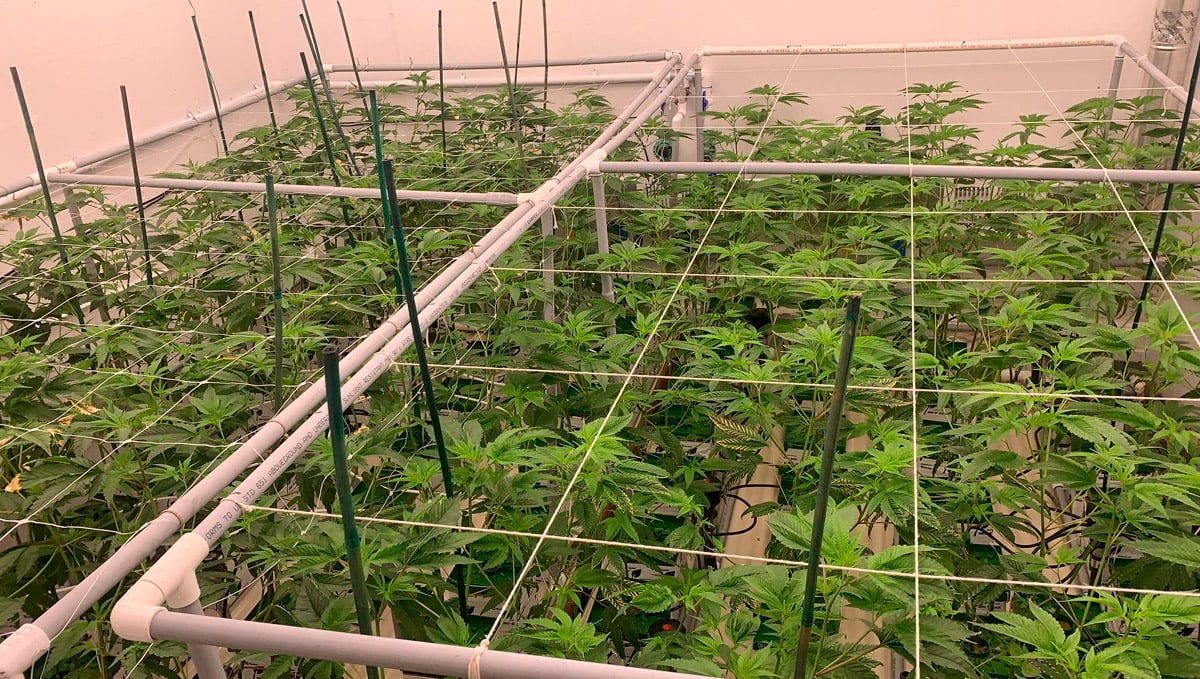
So, what exactly is trellising you might be wondering. Have you ever seen a picture of weed plants growing with nets all around them, well it's exactly that. How do you do it? Basically, you’ll need to spread out extruded or molded plastic netting, nylon string, or anything similar that works for creating a solid structure to support the plant. Be careful that the net of choice isn't too thin or sharp that it may cut your plants.
The benefits of applying the trellising method rely on the fact that you can shape and organize the way your plants grow so that most of the flowers receive more sunlight and more sunlight basically translates into better and bigger buds. The main thing to take into consideration before applying the trellis method is the dedication you’re going to have to put into the plants from so on. By spreading out the net you will then need to take the time to take each of the plants’ heads and pass it through every single one of the net’s holes. Anyway, don't be discouraged if this all seems like a big responsibility, at the end of the day, all the efforts will be worth it.
8. The Bottom Line
The clichéd phrase “do all things with love” applies to cultivating cannabis as well. Growing marijuana plants can be simple, whether it is indoor or outdoors, all it takes is the right approach: patience and organization. The more attention and love you give to your plants, probably the better the results will turn out to be.
"Cleanliness and order are not matters of instinct; they are matters of education, and like most great things, you must cultivate a taste for them." -Benjamin Disraeli
Don't be discouraged if you're naturally untidy, all it takes is some change of habits. As long as you keep an attentive state of mind and try to maintain your garden clean you'll get used to it. Good luck! And don't hesitate to comment and send us pictures of your garden below!
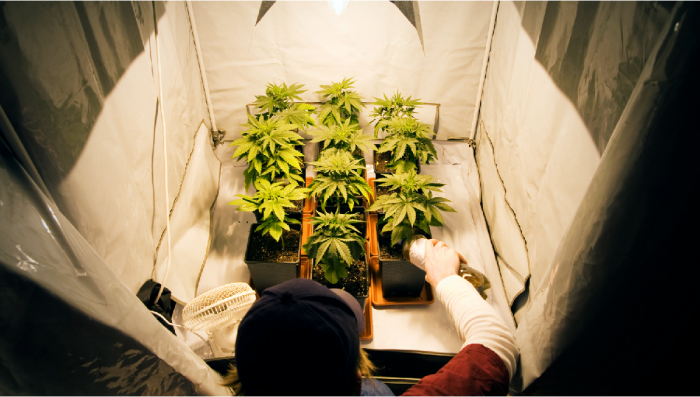








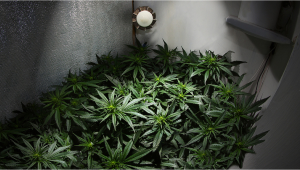
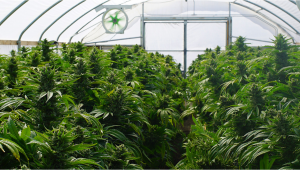

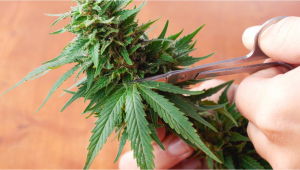




Comments